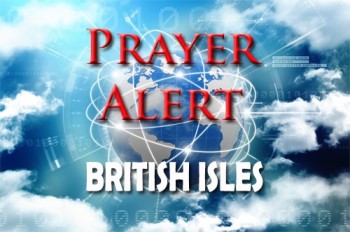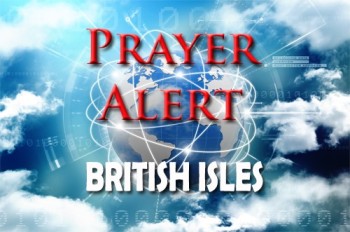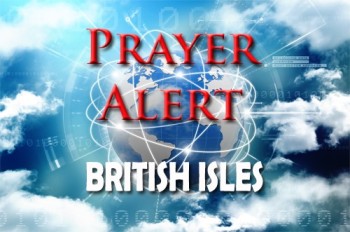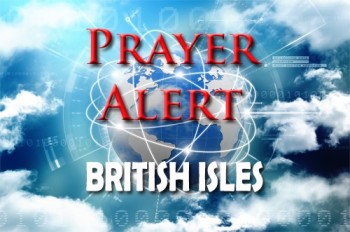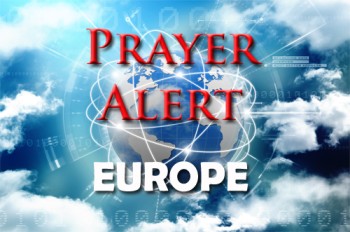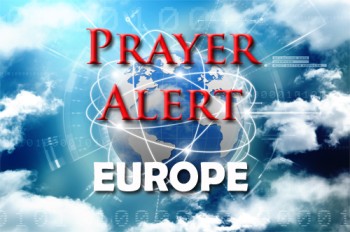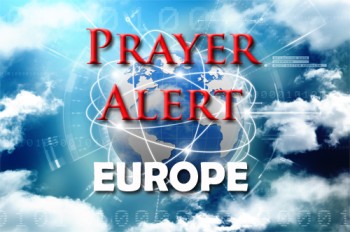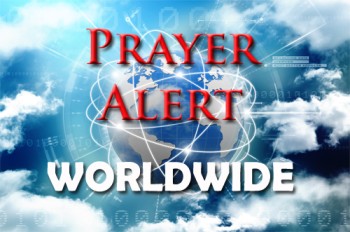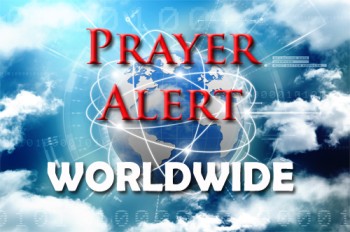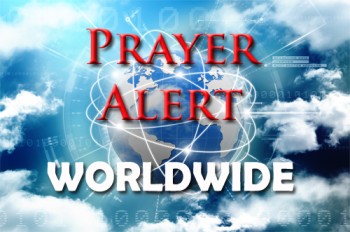
David Fletcher
David Fletcher is Prayer Alert’s Editor.
He is part of a voluntary team who research, proof-read and publish Prayer Alert each week.
If you would like to make a donation towards our running costs, please click here.
UK inflation has risen for the first time in five months, increasing to 3.4% in the year to December. The rise, though higher than expected, is widely attributed to temporary factors rather than a sustained upward trend. The Office for National Statistics said higher airfares over the Christmas and New Year period were a major contributor, alongside increased tobacco prices following a Budget tax rise. Food prices also edged up, notably for bread, cereals, and vegetables, adding pressure on household budgets. Despite the increase, analysts believe inflation is likely to fall again in the coming months. The Bank of England, which ended 2025 by cutting interest rates to 3.75%, is expected to proceed cautiously when it meets in February, with gradual cuts anticipated later in the year. The Government says reducing the cost of living remains a priority, while critics blame high taxes and borrowing for continued pressure on families. Compared with European neighbours, UK inflation remains relatively high, though forecasts suggest a decline is likely soon.
The Government has launched a £15 billion Warm Homes Plan aimed at expanding solar power, heat pumps, and other green technologies across households over the next five years. The scheme seeks to triple the number of homes with solar panels while increasing uptake of low-carbon heating. It includes a mix of grants and low or zero-interest loans, available regardless of household income. The Boiler Upgrade Scheme will be extended until 2029/30, offering grants of up to £7,500 for air-source heat pumps. An additional £600 million has been allocated to fully fund solar panels and battery storage for low-income households. It is estimated that combining solar, battery storage, and heat pumps could save an average household up to £1,300 a year. The plan is also expected to boost demand for skilled installers, creating opportunities for green-tech businesses and workforce training. Ministers say the programme supports decarbonisation, energy security, and cost-of-living relief, though experts stress the importance of improving insulation alongside new technologies.
MPs are debating plans to remove the immunity provision from legislation addressing unresolved crimes from the Northern Ireland Troubles. The Government is seeking approval for an order to overturn elements of the previous Legacy Act, including a scheme that would have granted immunity from prosecution to individuals involved in Troubles-related offences in exchange for cooperation with a truth recovery body. That scheme was ruled unlawful and never implemented. Northern Ireland secretary Hilary Benn said the changes are necessary to restore trust among victims’ families and communities who strongly oppose immunity for those responsible for violence and murder. The order would also lift restrictions on bringing new civil claims, reinstating the right of families to seek justice through the courts. In response to concerns among veterans’ groups that this could expose former members of the armed forces to repeated or unfair legal action, the Government intends to introduce safeguards for veterans, including limits on reinvestigation, health protections, anonymity provisions, and alternative ways of giving evidence.
The incoming Archbishop of Canterbury, Sarah Mullally, has defended the CofE’s £100 million slavery reparations fund amid growing political and internal opposition. Writing to MPs and peers calling for the plan to be scrapped, she said the Church must address its historic links to African chattel slavery with honesty, responsibility, and Christian integrity. The fund is intended to provide seed funding for community projects and enterprises serving those affected by the legacy of slavery. Critics, including several Conservative MPs, argue the money should instead support parish ministry, church buildings, and historic records, warning of legal and financial risks. Dame Sarah responded that the initiative does not reduce parish funding, noting that £1.6 billion has been committed to parishes over the next three years. However, polling suggests significant concern among churchgoers, with many saying parish ministry should take priority and warning they may redirect giving if the fund proceeds.
Tensions between the USA and Europe eased after Donald Trump reversed his threat to impose tariffs on European countries over Greenland and ruled out using force to seize the territory. Speaking in Davos, Trump said a new ‘framework’ had been agreed with NATO secretary-general Mark Rutte, focussing on Arctic security, minerals, and defence cooperation. While details remain vague, the move paused a looming trade dispute that had shaken transatlantic relations and raised fears about NATO’s future. Denmark welcomed the de-escalation but reaffirmed that Greenland’s sovereignty is non-negotiable. European leaders cautiously praised the shift, seeing it as a step away from confrontation. Analysts, however, do not believe that trust can be fully restored, warning that relations may stay fragile, with trade and security tensions ready to resurface.
Spain has entered a period of deep national grief following its deadliest rail disaster in more than a decade. A high-speed collision near Adamuz in southern Andalusia claimed at least 41 lives, with fears that the toll could still rise as recovery work continues. Two trains derailed on 18 January after one strayed into the path of another, and investigators are carefully examining the scene, focusing on a carriage believed to have derailed first. The transport minister said that experts were extremely surprised because it happened on a flat stretch of track which had been renovated in May. Mechanical failure is being considered; sabotage, human error, and excessive speed have been ruled out. Local residents were among the first to help the injured, facing scenes of profound trauma. As families wait anxiously for news and many remain in hospital, the country is observing days of mourning, united in sorrow and still searching for answers.
As Ukraine is enduring one of the harshest winters of the war, Russian strikes continue to target the country’s energy infrastructure. In Kyiv alone, around four thousand buildings remain without heating and nearly 60% of the city has lost electricity following recent attacks. Across the country, communities face similar disruptions amid freezing temperatures. Volodymyr Zelensky has declared a state of emergency in the energy sector, with schools closed, public lighting reduced, and hundreds of thousands leaving the capital. He has also criticised the mayor of Kyiv, former boxer Vitali Klitschko, for not doing enough to restore power quickly. Hospitals have reported more than a thousand cases of frostbite and hypothermia in recent weeks. Emergency warming tents now dot the city, offering shelter and food. Germany has described Russian winter attacks on energy as war crimes, and the International Criminal Court has issued arrest warrants for two top military officials said to be responsible for them.
A small Palestinian children’s football pitch in Bethlehem has been granted a temporary reprieve after Israel postponed its planned demolition. The Aida Youth Centre pitch, built in 2020 to serve more than two hundred children from the nearby Aida refugee camp, was declared illegal for lacking permits and for its proximity to Israel’s security barrier. A demolition order issued late last year sparked a widespread international campaign, including a petition signed by more than half a million people and appeals from figures within global football. The Israeli military, which still maintains that the pitch poses security concerns, says the postponement is ‘for the time being’. For local families, the issue carries deep emotional weight, symbolising dignity, hope, and normal childhood amid overcrowding and restriction. While the immediate threat has eased, the community fears the order could return once attention fades, and has vowed to keep campaigning.
Iran’s foreign minister has issued his most direct warning yet to the USA, threatening a full military response if Iran faces renewed attack, as the country remains under intense pressure following its deadly crackdown on protests. Writing in a US newspaper, he defended the government’s actions and blamed armed unrest for the violence, despite video evidence suggesting security forces fired on unarmed demonstrators. His remarks come amid heightened regional tensions, with a US aircraft carrier group moving toward the Middle East and American military assets repositioned across the region. Iran has also been accused of launching missile and drone strikes against a Kurdish separatist group in northern Iraq, further escalating concerns. Human rights organisations report more than 4,500 people killed and over 26,000 arrested during the protests, with fears growing that some could face execution. Iran’s Supreme Leader has acknowledged thousands of deaths while blaming the United States. Though protests have subsided amid internet shutdowns, the scale of casualties and rising military rhetoric have raised alarms about wider regional conflict and severe consequences for civilians.
Grief and anger grip Karachi after a devastating fire tore through Gul Plaza, a crowded wholesale shopping centre, leaving at least 27 people dead and more than seventy missing. The blaze spread rapidly late on 17 January, trapping shoppers and workers inside a building packed with stalls and mostly locked exits. Survivors described panic, thick smoke, and desperate attempts to escape as flames engulfed the floors within minutes. Many families are still waiting for news of loved ones, gathering at the ruins in anguish and uncertainty. Rescue efforts have been slowed by the unstable, heavily damaged structure, with officials warning it could collapse at any time. As forensic teams work to identify victims, public frustration has grown over alleged delays in emergency response and long-standing safety failures. Protests have erupted, with calls for accountability, reforms in building regulations, and improved disaster preparedness to prevent further tragedies.

